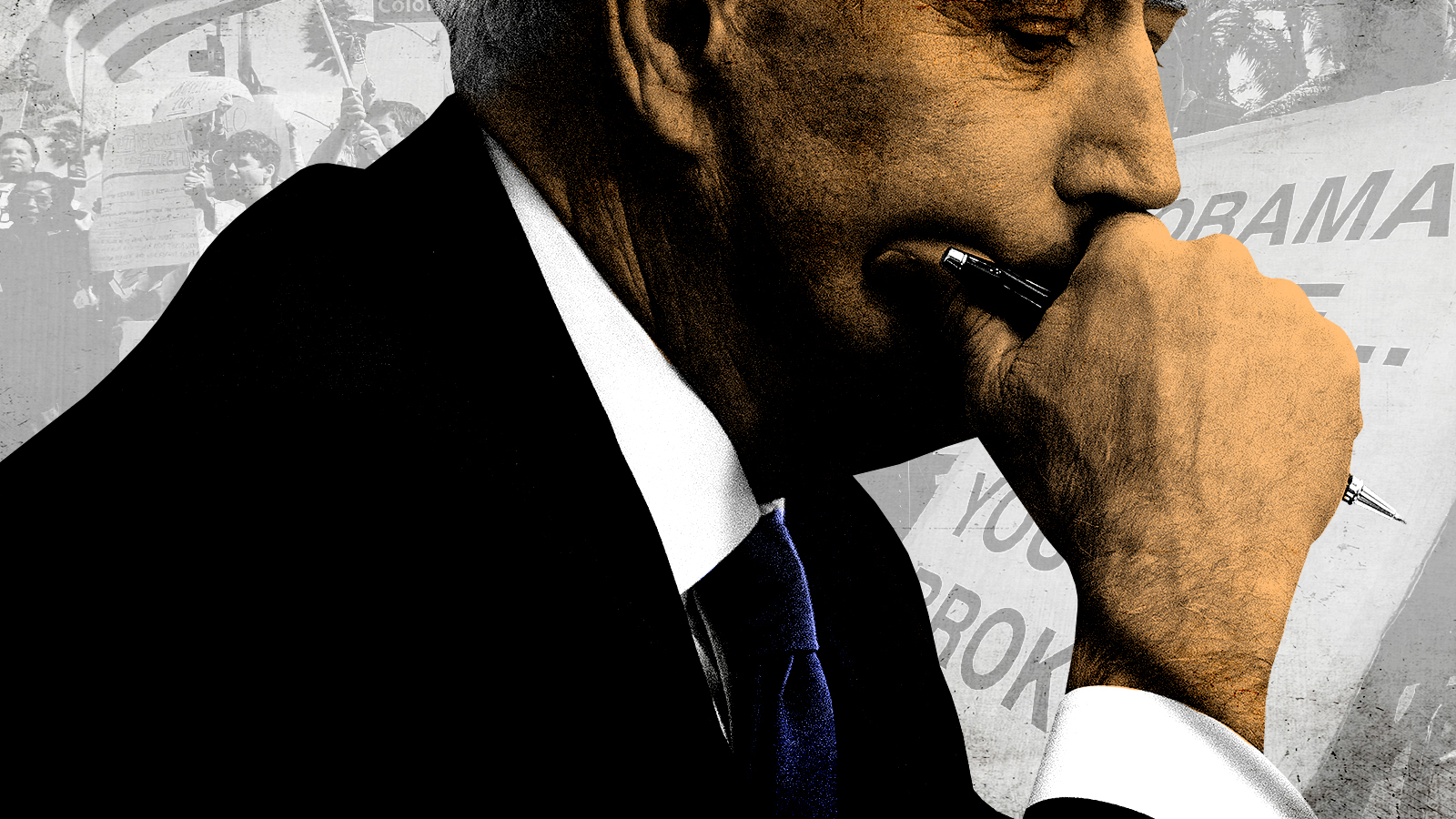Republicans might be right this time about inflation
They're trying to rain on Biden's parade. That doesn't mean their concerns aren't legitimate.


A free daily email with the biggest news stories of the day – and the best features from TheWeek.com
You are now subscribed
Your newsletter sign-up was successful
President Trump predicted a Biden presidency would crash the stock market and cause a depression. So far, however, so good. Like, really good.
With the economy reopening and stimulus cash flowing, the economy grew at a rapid 6.4 percent annual rate in the first quarter (adjusted for inflation), and Wall Street's biggest banks are predicting overall growth this year and next will be the strongest since the mid-1980s. What's more, the stock market is up 12 percent since the start of the year. And while history suggests Democrats will likely lose control of Congress in 2022, the prospect of a historically white-hot economy and plunging unemployment gives them a decent reason to hope for an upset.
All of which means Republicans have been looking for a counterargument that undercuts confidence in the emerging Biden Boom. And they hope they've found one. GOP House members are being urged to warn voters that the recent inflation surge is due to the Biden agenda. In a memo to his colleagues, Rep. Jim Banks, who leads the Republican Study Committee, says, "There's no doubt inflation is tied to the reckless spending bills Democrats have pushed for during the last year. Increasing the money supply to fund things like stimulus cash and generous unemployment benefits will always devalue our currency, which means your dollar won't go as far." To pass even more new spending would be "reckless'' and "downright insane."
The Week
Escape your echo chamber. Get the facts behind the news, plus analysis from multiple perspectives.

Sign up for The Week's Free Newsletters
From our morning news briefing to a weekly Good News Newsletter, get the best of The Week delivered directly to your inbox.
From our morning news briefing to a weekly Good News Newsletter, get the best of The Week delivered directly to your inbox.
This is not the first time Republicans have turned to alarmist messaging after a big economic shock. Back in 2009, they warned that the Obama stimulus package and other spending increases, along with the Federal Reserve's aggressive and novel efforts to stem the global financial crisis, would lead to economic catastrophe: a debt crisis, higher inflation, rising interest rates, a collapsing dollar — or some combination of all of the above. "This is not just a road to stagnation, it is a road to stagflation," said Rep. Paul Ryan at the time. "Such heavy borrowing runs the risk down the line of rampant inflation, which scares away foreign capital while making the purchasing power of the dollar weaker for American consumers," said then-House Minority Whip Eric Cantor.
Instead, what happened was the longest economic expansion in U.S. history. And while its lack of sizzle initially concerned many economists, slow-but-steady progress eventually led to a tight labor market that brought real wage gains to all income groups. Democrats point to those failed GOP predictions as a reason the public should ignore them this time around — and to question their sincerity. It certainly doesn't help the GOP argument that the party passed a big deficit-financed tax cut in 2017, and that President Trump had no interest in serious deficit reduction while also pushing the Federal Reserve for even deeper interest rate cuts.
Still, the GOP inflation message might work. Prices are rising, after all. The consumer price index grew at a 4.2 percent annual rate in April, the fastest in more than a decade. Inflation expectations are also rising rapidly, with the University of Michigan's household measure for long-term expectations surging to its highest level since March 2011. And it's not just Republicans and consevative economists warning about inflation. As that GOP memo points out, Lawrence Summers, a top economic adviser to Obama and Treasury secretary under President Clinton, warned in February that Biden's $1.9 trillion so-called COVID-19 relief plan could "set off inflationary pressures of a kind we have not seen in a generation, with consequences for the value of the dollar and financial stability."
That Summers quote, besides being included as a bit of troll, suggests a deeper message: Whatever the current impact on prices, the Biden agenda is an unsustainable endeavor and a risky scheme that tempts another financial crisis. While many Americans may not remember the Great Inflation of the 1970s, they sure remember the banking and housing collapse of 2007 through 2009. That said, a sustained rise in inflation probably would begin with what seems like a bunch of quirky, one-off price increases that eventually changed the inflation expectations of consumers, business, and investors. We don't know yet if that is going to happen, but we shouldn't dismiss the possibility. And if such a scenario should happen, it could cause the Federal Reserve to act in a way that might cut short the post-pandemic expansion.
A free daily email with the biggest news stories of the day – and the best features from TheWeek.com
Even if the GOP message falls flat with voters and strikes Democrats as a bad-faith argument, its concerns should be taken seriously by policymakers. As hard as it is for many on the left to believe, something isn't wrong just because the GOP says it's right.
James Pethokoukis is the DeWitt Wallace Fellow at the American Enterprise Institute where he runs the AEIdeas blog. He has also written for The New York Times, National Review, Commentary, The Weekly Standard, and other places.
